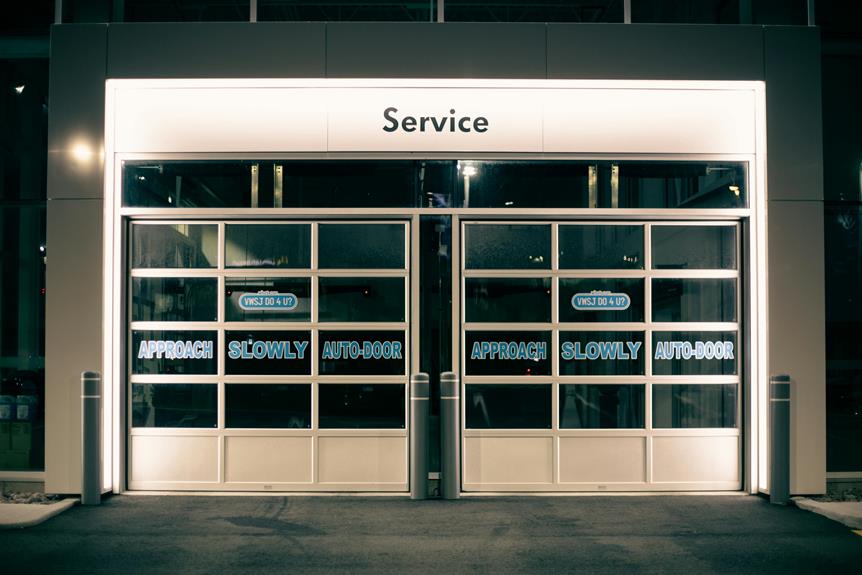Germany's SaaS market is witnessing a surge in companies focusing on user-centric models and catering to SMBs and enterprises. The ecosystem emphasizes transparent pricing, with entry-level costs at half the premium tiers. Notable companies like Celonis are driving innovation with unique pricing strategies, contributing to the growth of European SaaS unicorns. Surge in investment opportunities in this thriving ecosystem presents promising prospects, although startups face challenges in pricing transparency and customer attraction. For a deeper insight into this booming SaaS landscape and the future outlook, explore the dynamic German SaaS market.
Key Takeaways
- Increasing number of SaaS companies in Germany, driving innovation and growth.
- Emphasis on user-centric models and price differentiation strategies.
- Focus on catering to SMBs and enterprises with custom pricing strategies.
- Establishment of a strong presence within the growing SaaS ecosystem.
- Utilization of transparent pricing models and add-on potential for success.
The Growth of German SaaS Market
The burgeoning German SaaS market has experienced a substantial surge in growth, characterized by an increasing number of SaaS companies establishing a strong presence within the thriving ecosystem.
These companies are prioritizing user-centric models and employing price differentiation strategies to cater to SMBs and enterprises effectively.
Emerging SaaS Trends in Germany
Witnessing a dynamic shift, emerging trends in the German SaaS landscape are reshaping the industry's trajectory towards innovation and customer-centric solutions. German SaaS companies are increasingly adopting transparent pricing models to cater to SMBs and enterprises.
Entry-level prices in Germany are typically half the cost of premium tiers to align with expansion revenue strategies. Custom pricing strategies offer substantial pricing power and maximize revenue in the German SaaS market.
Top SaaS Companies in Germany
Within the vibrant landscape of the German SaaS industry, notable companies are making significant strides towards innovation and market leadership. Companies like Celonis, which secured $1bn in Series D funding, stand out in Germany's thriving SaaS ecosystem.
The country's contribution to the growth of European SaaS unicorns is substantial, with custom pricing strategies and untapped add-on potential driving the success of German SaaS firms.
Investment Opportunities in German SaaS
The German SaaS industry is currently experiencing a surge in investment opportunities, with notable growth in funding trends and market dynamics.
This rise in SaaS investments in Germany is reflective of the broader expansion seen in the European SaaS market.
As the sector continues to attract substantial capital and witness the emergence of unicorns, investors are presented with promising prospects to capitalize on the thriving German SaaS ecosystem.
Growth in SaaS Investments
Amidst the flourishing SaaS landscape in Europe, particularly in Germany, there exists a compelling surge in investment opportunities within the German SaaS sector.
The SaaS capital raised in Europe, Israel, and the US reached historic levels in 2021, indicating a thriving investment landscape.
Private cloud funding in the EU and Israel surged by 3.2 times from 2020 to 2021, showcasing significant growth opportunities for investors.
Market Trends in Germany
Experiencing a surge in funding and innovation, the German SaaS market presents lucrative investment opportunities for discerning investors.
- The record-breaking SaaS capital raised in 2021 showcases a thriving ecosystem.
- Private cloud funding in Germany has soared, increasing 3.2 times from the previous year.
- A total of 95 new unicorns emerged in the German SaaS industry in 2021.
- Celonis' $1 billion Series D funding round marked the largest in European SaaS history.
Challenges Faced by SaaS Startups
Exploring the intricacies of pricing transparency and user-centric models presents significant challenges for SaaS startups operating in Germany. Entry barriers and effective price differentiation strategies are crucial for success.
Balancing freemium models and trials is key to attracting and retaining customers. Custom pricing strategies and add-on monetization offer substantial revenue potential.
German SaaS startups must navigate these challenges to thrive in the competitive market.
Future Outlook for German SaaS Industry
What trends are shaping the future landscape of the German SaaS industry?
- Continued growth in funding indicates a promising trajectory.
- Increasing private cloud investments signal industry maturation.
- Rise in SaaS unicorns underscores market competitiveness.
- Shift towards private funding hints at strategic development opportunities.
Conclusion
To wrap up, the German SaaS market is undergoing significant growth with emerging trends and top companies leading the way.
There are ample investment opportunities in this booming ecosystem, although startups may face challenges along the way.
Despite these obstacles, the future outlook for the German SaaS industry remains promising, with continued innovation and advancements expected in the years to come.








































